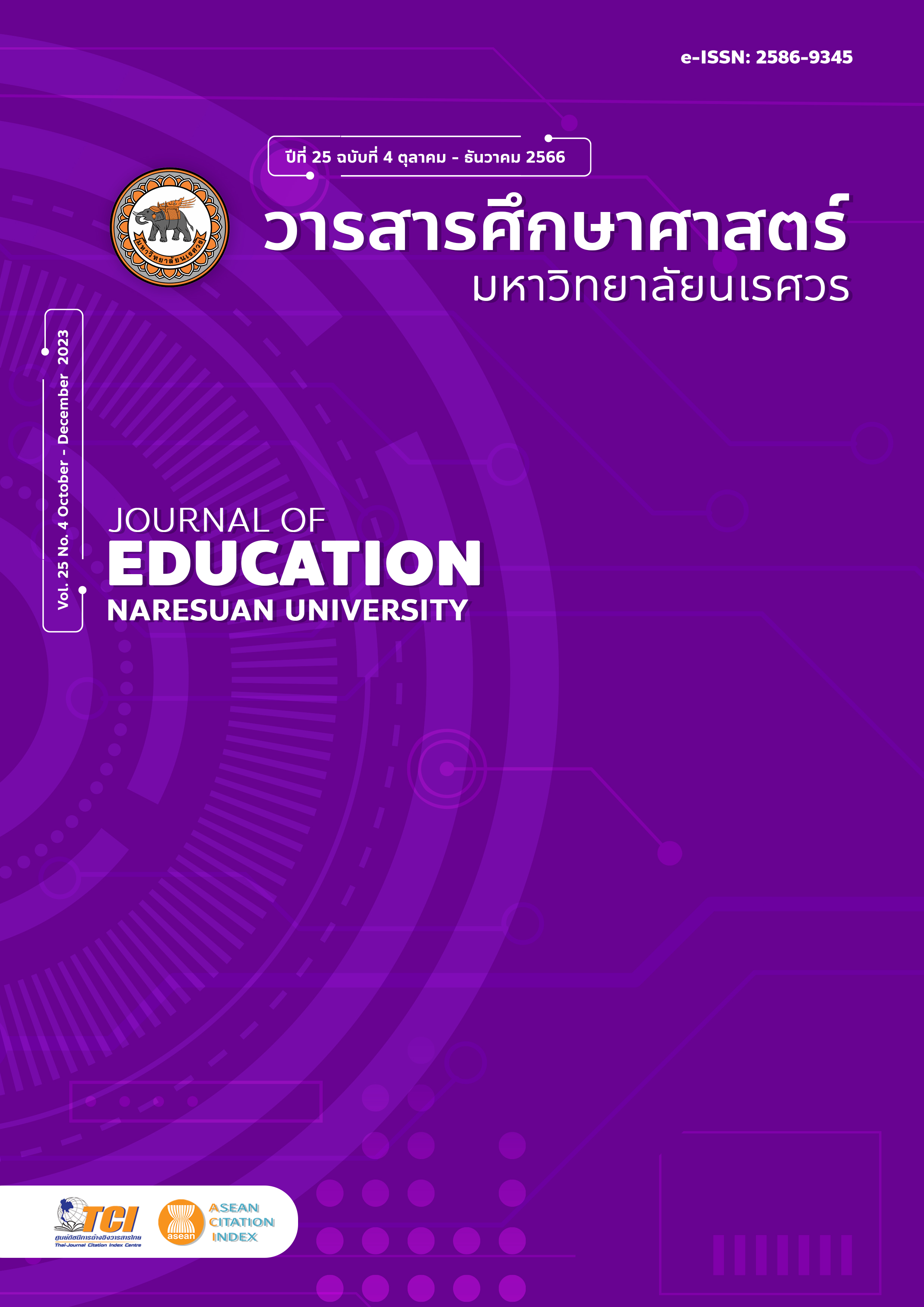EMPLOYING INNOVATIVE STRATEGIES IN REACHING OUT THE ELEMENTARY LEARNERS: STORIES DURING THE TIMES OF UNCERTAINTIES
Main Article Content
Abstract
Reaching out the learners as an educator is more challenging in this new normal setting. This qualitative research employing phenomenology aimed to determine the live experiences of public elementary teachers relative to the employing innovative strategies in reaching out the learners in the Municipality of Pikit especially on the Special Geographical Areas under the Bangsamoro Autonomous Region in Muslim Mindanao. Results showed that the innovative strategies were participation with parents and utilization of social media. Teachers were challenged in reaching out the learners, lack of learner’s participation, poor internet connection, and communicating with parents and other stakeholders. Meanwhile, the teachers from the Department of Education utilized new approaches which can be of great help for achieving the greater heights and motivation that they can get from their loved ones can ignite their interest to continue with their studies. Implications for practice and future research verbalized the significance of the present study in enhancing pedagogical practices especially during the uncertain times.
Article Details

This work is licensed under a Creative Commons Attribution-NonCommercial-NoDerivatives 4.0 International License.
The owner of the article does not copy or violate any of its copyright. If any copyright infringement occurs or prosecution, in any case, the Editorial Board is not involved in all the rights to the owner of the article to be performed.
References
Agaton, C. B., & Cueto, L. J. (2021). Learning at home: Parents' lived experiences on distance learning during COVID-19 pandemic in the Philippines. International Journal of Evaluation and Research in Education, 10(3), 901-911. DOI:10.11591/ijere.v10i3.21136
Agarwal, S., & Kaushik, J. S. (2020). Student’s perception of online learning during COVID pandemic. The Indian Journal of Pediatrics, 87, 554. https://doi.org/10.1007/s12098-020-03327-7
Allo, M. D. G. (2020). Is the online learning good in the midst of Covid-19 pandemic? The case of EFL learners. Jurnal Sinestesia, 10(1), 1-10.
Anzaldo, G. D. (2021). Modular distance learning in the new normal education amidst Covid-19. International Journal of Scientific Advances, 2(3), 263-266.
Basilaia, G., & Kvavadze, D. (2020). Transition to online education in schools during a SARS-CoV-2 coronavirus (COVID-19) pandemic in Georgia. Pedagogical Research, 5(4). https://doi.org/10.29333/pr/7937
Baticulon, R. E., Sy, J. J., Alberto, N. R. I., Baron, M. B. C., Mabulay, R. E. C., Rizada, L. G. T., ..., & Reyes, J. C. B. (2021). Barriers to online learning in the time of COVID-19: A national survey of medical students in the Philippines. Medical Science Educator, 31(2), 615-626. DOI: 10.1007/s40670-021-01231-z
Bhutta, Z. A. (2004). Beyond informed consent. Bulletin of the World Health Organization, 82, 771-777.
Boholano, H. B., & Jamon, B. E. V. (2021). Teachers lived experiences in the new normal in Philippine Public Schools: A Phenomenology. International Journal of Research, 8(2), 773-782.
Byrne, M. (2001). Sampling for qualitative research. AORN Journal, 73(2), 494-494.
Colegio, K. K. D., Abella, C. O., Mendoza, R. M. N., & Mojares, J. G. (2020). Learning modalities in literature of intermediate pupils at Bernardo Lirio Memorial Central School, Philippines. Asian Journal of Language, Literature and Culture Studies, 3(2), 1-9.
Crang, M. (2003). Qualitative methods: Touchy, feely, look-see? Progress in Human Geography, 27(4), 494-504.
Ellis, V., Steadman, S., & Mao, Q. (2020). ‘Come to a screeching halt’: Can change in teacher education during the COVID-19 pandemic be seen as innovation? European Journal of Teacher Education, 43(4), 559-572. DOI: 10.1080/02619768.2020.1821186
Esterberg, K. (2002). Qualitative methods in social research. Boston: McGraw Hill.
Gunawan, G., Suranti, N. M. Y., & Fathoroni, F. (2020). Variations of models and learning platforms for prospective teachers during the COVID-19 pandemic period. Indonesian Journal of Teacher Education, 1(2), 61-70.
Hash, P. M. (2021). Remote learning in school bands during the COVID-19 shutdown. Journal of Research in Music Education, 68(4), 381-397. https://doi.org/10.1177/00224294209670
Kong, S. C., & Wang, Y. Q. (2021). The influence of parental support and perceived usefulness on students’ learning motivation and flow experience in visual programming: Investigation from a parent perspective. British Journal of Educational Technology, 52(4), 1749 – 1770. DOI: 10.1111/bjet.13071
Laxton, D., Cooper, L., & Younie, S. (2021). Translational research in action: The use of technology to disseminate information to parents during the COVID-19 pandemic. British Journal of Educational Technology, 52(4), 1538–1553. https://doi.org/10.1111/bjet.13100
Mitchell, V. W. (1994). Using industrial key informants: Some guidelines. Market Research Society Journal, 36(2), 1-5. https://doi.org/10.1177/147078539403600206
Mithani, M. A. (2020). Adaptation in the face of the new normal. Academy of Management Perspectives, 34(4), 508-530. https://doi.org/10.5465/amp.2019.0054
Naparan, G. B., & Alinsug, V. G. (2021). Classroom strategies of multigrade teachers. Social Sciences & Humanities Open, 3(1), 1-6. DOI: 10.1016/j.ssaho.2021.100109
Sahoo, S. (2020). E-readiness and perception of student teachers’ towards online learning in the midst of COVID-19 pandemic. SSRN Electronic Journal. https://doi.org/10.2139/ssrn.3666914
San Luis, J. C. (2022). Looking through the lens of rural science teachers in the new normal setting. International Journal of Educational Management and Development Studies, 3(1), 74 - 96. https://doi.org/10.53378/352864
Sari, T., & Nayır, F. (2020). Challenges in distance education during the (Covid-19) pandemic period. Qualitative Research in Education, 9(3), 328–360. https://doi.org/10.17583/qre.2020.5872.
Sharma, G. (2017). Pros and cons of different sampling techniques. International Journal of Applied Research, 3(7), 749-752.
Soriano, R., Asio, H., Almoite, A., Cruz, K. D., & Aspiras, E. (2022). Teaching in tumultuous times: Unraveling teachers’ experiences amidst the COVID-19 pandemic. Journal of Education, Management and Development Studies, 2(1), 128-141. https://doi.org/10.52631/jemds.v2i1.64
Talimodao, A. J. S., & Madrigal, D. V. (2021). Printed Modular Distance Learning in Philippine Public Elementary Schools in Time of COVID-19 Pandemic: Quality, Implementation, and Challenges. Philippine Social Science Journal, 4(3), 19-29. https://doi.org/10.52006/main.v4i3.391
Tokić, R. (2020). Participativna uloga roditelja u aktivnostima škole. Napredak: Časopis za interdisciplinarna istraživanja u odgoju i obrazovanju, 161(1-2), 105-122.
Wong, L. P. (2008). Focus group discussion: a tool for health and medical research. Singapore Medical Journal, 49(3), 256-260.


